Dick Ogg, a silver-haired former electrician who switched to making his living catching crabs two decades ago, is a staunch supporter of the union representing fishing boat captains along America’s western seaboard.
But when he heard that the Pacific Coast Federation of Fishermen’s Associations was suing some of the world’s largest oil companies for causing the climate crisis, Ogg took stock of the barrels of diesel oil stacked on his vessel, the 54-foot Karen Jeanne, and wondered if the litigation was not only a mistake but hypocritical.
“How do we run our engines without oil? How do we fish without oil? Electricity? I’m a small vessel. I’m only 68 tons and my God, I don’t know how that would work,” said Ogg, who fishes out of Bodega Bay, about 70 miles north of San Francisco.
The environmental harm brought by rising ocean temperatures has severely undercut fishing seasons and supplies, at a steep cost to the industry. And so in response to years of setbacks, union leaders pursued a novel strategy to reclaim lost earnings: by going after one of the culprits responsible for driving global temperatures.
Three years ago, the PCFFA became the first private organisation to join the growing number of lawsuits accusing the oil and gas industry of covering up research that warned about the dangers of burning fossil fuels. The plaintiffs want compensation for damage caused by global heating and to meet the cost of new infrastructure to cope with the climate crisis. They also demand the oil industry change its ways.
Ogg is not alone among west coast fishing boat owners in questioning the association’s lawsuit – and the head of the PCFFA, Mike Conroy, knows it.
“When I first heard of this lawsuit, I had that very same thought. This is ridiculous,” he said.
Conroy said that he understands the lawsuit looks hypocritical to many people because the fishing industry is so dependent on oil. But he said his view shifted when he looked more closely at the actions of the fossil fuel industry, particularly its cover-up of the warnings from its own scientists and its continued efforts to undermine measures to contain global heating.
The scepticism among Conroy’s members about suing big oil reflects sharp divisions in American society about responsibility for the deepening environmental emergency and the challenges litigants face in attempting to hold the industry to account.
“It’s controversial. I get it,” Conroy adds. “But then I learned that these oil companies were doubling down on these things they knew were bad, and if we’re putting forth effort to reduce our impacts on the climate then we shouldn’t be doing that alone.”
The PCFFA, representing about 900 family-owned fishing boats on the Pacific coast, sued after a surge in blooms of toxic algae shut down fishing for Dungeness crab. The crabs are Oregon’s most valuable catch, pumping about $75m a year into the state’s economy, and account for about one-quarter of California’s revenues from fishing.
In 2013, a huge pool of warm water that became known as the Blob appeared off the Pacific coast. Two years later, the Blob had grown to more than 2,000 miles long, running from the Mexican border to Alaska. Water temperatures rose to 4.5F (2.5C) above normal, causing an increase in the neurotoxin domoic acid that delayed the opening of the 2015 Dungeness crab season along the west coast by months.
The shutdown cost more than $100m in lost earnings and wages by some estimates. Two-thirds of boats were docked and others had to move to different fisheries. The total catch was only about half of a normal year.
“I know a number of folks that lost their boats, lost their homes, lost their families,” said Conroy.
Commercial crabbers faced shortened seasons again in the following years because toxicity levels remained high and marine heatwaves shifted krill closer to the shore, drawing endangered humpback and blue whales into crabbing areas, where they are in danger of becoming entangled in fishing lines.
In its lawsuit, the PCFFA blamed the Blob on global heating caused by the burning of fossil fuels, and is seeking compensation for “a harmful algal bloom unprecedented in its extent and persistence”.
A National Oceanic and Atmospheric Administration study last year concluded that climate change is likely to result in a sharp rise in marine heatwaves and the perpetuation of toxic blooms that might otherwise have washed away, with domoic acid hotspots becoming more frequent and more intense.
The Dungeness crab season was again delayed late last year on parts of the west coast after new domoic acid hotspots were identified off the Oregon coast, including near the port of Newport.
Clint Funderburg, a member of the Oregon Coast Crab Association who fishes out of Newport, said he was reluctant to pin responsibility for the domoic acid outbreak solely on the climate crisis, and therefore the fossil fuel industry.
“They were some hard years but these problems come and go. I’m not saying there isn’t climate change but there’s a history of domoic acid on this coast and I don’t know if we can say it’s one thing or the other causing it,” he said.
Ogg does domoic acid testing for the state along a 30-mile stretch of coast in his area. He said the readings are consistently up but, like others fishing his Pacific coast, he notices that it coincides with an intensification of the vineyard industry.
“Climate change definitely is real. We know that and it is impacting us. But it’s really at times a cyclical thing. What we’re looking at is a combination of a lot of things that are breaking down the system. It’s not one thing in particular,” he said.
Toxic algae blooms have made regular appearances along the west coast. An outbreak is believed responsible for “the great bird frenzy” around beachside communities in Santa Cruz, California, in 1961, which played a part in shaping Alfred Hitchcock’s classic film, The Birds.
But the intensity of the recent outbreaks, and the scale of the Blob, has scientists worried. Studies also show that the ocean is absorbing more carbon dioxide from the atmosphere, making it more acidic. Among other things, higher acid levels affects the ability of crustaceans to build their shells. In the early 2000s, the increased acidity killed off large numbers of young oysters and mussels unable to form shells.
Last year, the National Oceanic and Atmospheric Administration released a study that showed that baby Dungeness crabs were being exposed to the same corrosive waters.
Still, there remains the question of culpability.
“We all use diesel on our boats,” said Funderberg. “I’m not going to point the finger just at the oil companies. They sell it, we buy it.”
The oil and gas industry has spent years deflecting from its central part in global heating, pushing the claim that it is doing no more than selling a legal product and that it is the individual user who bears responsibility for putting greenhouse gases into the atmosphere.
Four of the companies sued by the PCFFA – Chevron, Exxon, BP and Shell – are responsible for more than 10% of the world’s carbon emissions since 1965. Nineteen of the 20 largest carbon emitters over the same period were oil and gas producers.
But the major polluters have had some success in following the tactic of the tobacco industry and gun makers in seeking to disperse responsibility by putting the onus on the individual user rather than the manufacturers.
A Guardian opinion poll published in October showed that strategy has paid off, with 31% of Americans saying that individuals are completely or mostly responsible for the climate crisis.
For his part, Ogg is fatalistic.
“The problem for me is suing never seems to solve the problem. The oil companies aren’t going to be hurt by a lawsuit. In fact, they want to continue, they’re going to continue,” he said.
Conroy sees it differently. He says the lawsuit is intended to “punish bad behaviour” and pressure the oil industry into changing its ways.
“A lot of my members don’t have the time to sit back and actually give this a lot of thought, which is unfortunate. But after the last crab season in California, I think more and more of them are starting to ask the questions that need to be asked,” he said.
This story originally appeared in The Guardian and is part of Covering Climate Now, a global journalism collaboration strengthening coverage of the climate story.







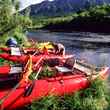
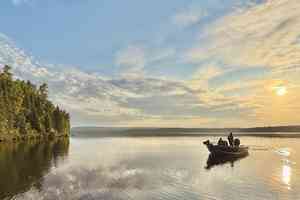



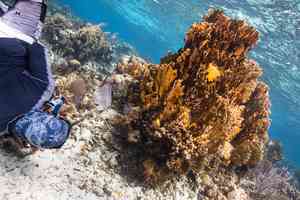

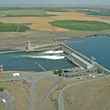
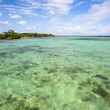




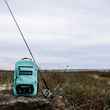



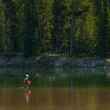
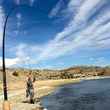
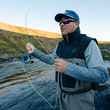
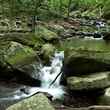

Comments
t tanner replied on Permalink
Human-caused climate change is the single largest threat to our fishing. It's good to see the press paying more attention to the situation, and sharing more climate information with the public.
Glenn Dotter replied on Permalink
A very interesting article. I look at the problem in a different way. The author is in the business of harvesting and selling crabs. Oil companies similarly are in the business of harvesting and selling oil. Both have a demand for their product. The crabber puts gas inhis truck, heats and cools his home, wears clothing that is made from oil in alot of cases, and uses his share of electricity. He also is probably the one to complains, like all of us, when there are gas shortages and electricity blackouts. He creates the demand that the oil companies service.. Now because the author (and all of us) demand the product and burn that product, we want to sue the oil companies for supplying that product. If there were no oil companies, would the crabber be able to ply his trade? Would he have even been an electrician? We would not have paved America for our transportation, because there would be no cars or trucks. We would still all be riding or driving horses. You all probably see where I am going. Oil companies found a product that we all demand and now some group of attorneys who make their living convincing us we can make money by sueing somebody has convinced your union that demands oil to ply its trade to sue the very companies that supply you. Who is the real culprit here? Climate change is about money. Billions and billions. There are those that want those billions and they must market their ideas. They have to blame someone. You blame oil companies for supplying the product that you burn to survive. Seems like we are our own enemy. Can we do better? Sure. Man has continually worked to improve our climate. But we need to be careful how we go about it.
i s
Pages